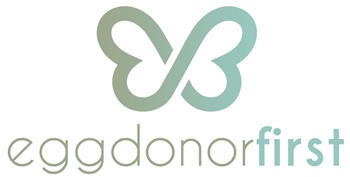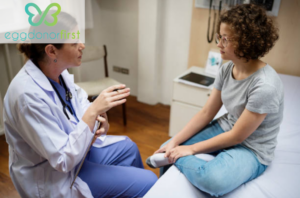For many women embarking on their journey to parenthood through egg donation, preparing for a successful pregnancy involves both physical and emotional considerations. While donor egg IVF already offers high success rates, proper preparation can further enhance your chances of a healthy pregnancy. Whether you’re using fresh or frozen donor eggs, this comprehensive guide will help you prepare for your donor egg pregnancy journey.
Physical Preparation Through Exercise
Exercise plays a crucial role in preparing your body for pregnancy, but it’s essential to approach it thoughtfully. Here’s how to incorporate exercise into your preparation:
Pre-Conception Exercise Guidelines
- Start with low-impact activities if you’re currently inactive
- Focus on exercises that build core strength
- Choose activities you can continue throughout pregnancy
Ideal exercises include:
- Walking
- Swimming
- Light weightlifting
- Prenatal yoga
- Core-strengthening movements
Exercise Precautions
- Avoid high-impact activities that risk abdominal trauma
- Skip exercises involving complex stretches or jumping
- Steer clear of activities with fall risks (skiing, horseback riding)
- Maintain moderate intensity to avoid overexertion
Nutritional Preparation
Proper nutrition is fundamental for creating an optimal environment for embryo implantation and maintaining a healthy pregnancy. Research, including the comprehensive Harvard Nurses’ Health Study, has shown that dietary choices significantly impact pregnancy success.
Essential Dietary Components
- Carbohydrates
- Prioritize complex carbohydrates
- Include whole grains, fruits, and vegetables
- Focus on high-fiber foods
- Avoid simple sugars and refined carbohydrates
Healthy Fats
- Include moderate amounts of healthy fats
- Consider incorporating 1-2 servings of whole-fat dairy products
- Avoid trans fats commonly found in processed foods
- Choose healthy fat sources like avocados, nuts, and olive oil
Protein Sources
- Balance animal and plant-based proteins
- Include beans, nuts, and legumes
- Obtain iron from leafy greens
- Avoid excessive animal protein consumption
Supplement Regimen
While supplements don’t replace a balanced diet, they ensure you receive essential nutrients. Key supplements include:
- Prenatal vitamins
- Folic acid
- Vitamin C
- Vitamin E
- Selenium
- Iron
- Omega-3 fatty acids
- Calcium
Stress Management Strategies
Managing stress is crucial during your donor egg journey. Here are effective stress-reduction techniques:
Physical Activities
- Gentle yoga
- Walking in nature
- Tai Chi
- Progressive muscle relaxation
Mental Wellness Practices
- Meditation
- Mindfulness exercises
- Guided imagery
- Journaling
- Support group participation
Alternative Therapies
- Acupuncture (shown to potentially improve IVF success rates)
- Massage therapy
- Mind-body exercises
Holistic Approach to Preparation
- Remember that preparing for a donor egg pregnancy involves a comprehensive approach:
- Maintain consistent healthy habits
- Follow medical protocols diligently
- Stay connected with your support system
- Consider joining support groups for women pursuing egg donation
- Keep open communication with your healthcare team
Final Thoughts
Preparing for a donor egg pregnancy is a journey that requires attention to both physical and emotional wellness. While the process may seem overwhelming, remember that each step you take in preparation increases your chances of success. Focus on creating sustainable healthy habits that you can maintain throughout your pregnancy journey.
If you’re considering donor egg IVF, consult with fertility specialists who can provide personalized guidance based on your specific situation. They can help you develop a comprehensive preparation plan that addresses your unique needs and circumstances.
Remember, every woman’s journey is different, and what works best for one person may not be ideal for another. Listen to your body, follow your healthcare provider’s advice, and be gentle with yourself as you prepare for this significant step toward parenthood.





